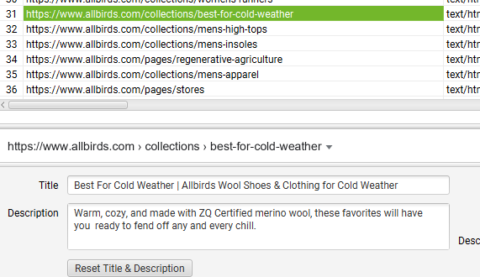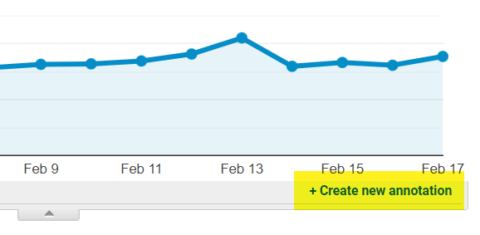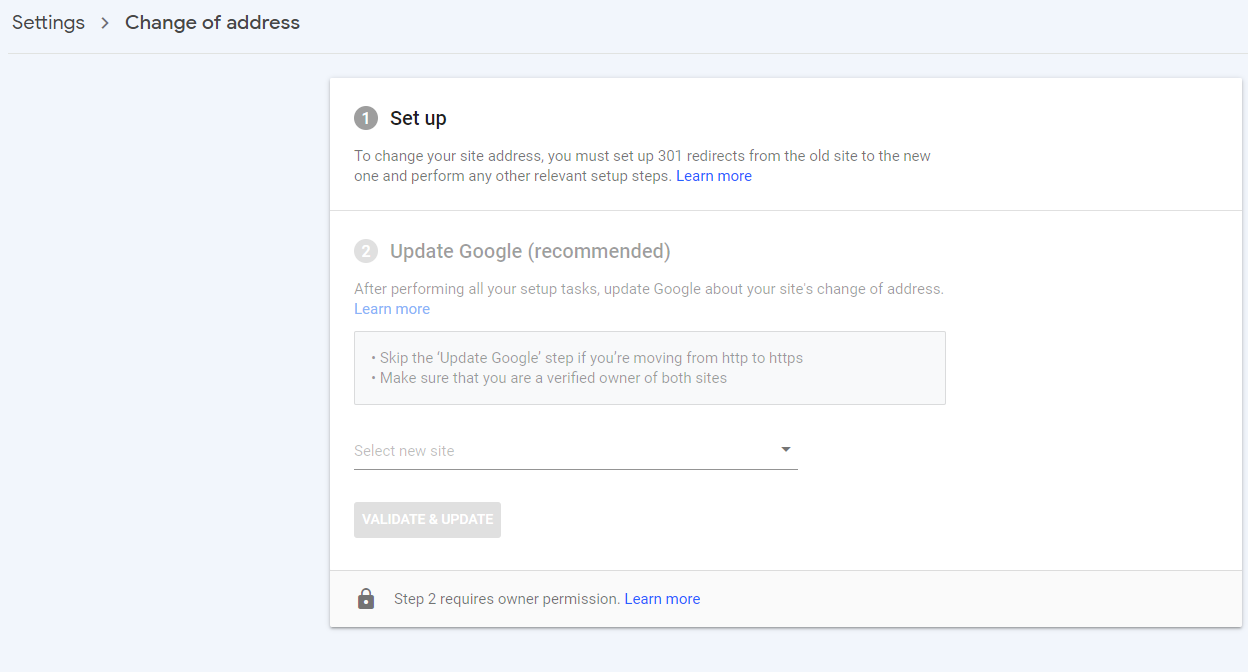
[ad_1]
Think about the despair you’d really feel seeing your new Shopify retailer’s natural visitors tank, gross sales evaporate, and web page 1 rankings drop from search outcomes.
After spending months constructing out your new Shopify website, sleepless nights going forwards and backwards with net designers and builders, nail-biting hours spent refreshing your Analytics, and ready for gross sales to trickle in once more, let’s simply say, migrating to a brand new ecommerce platform is usually a daunting job.
However don’t fear, this gained’t be you.
By following these website positioning finest practices for migrating to Shopify, you possibly can remove the anxiousness and pave the best way for a easy transition to your new Shopify retailer.
Why Migrate To Shopify?
Shopify is the worldwide chief in supporting impartial ecommerce manufacturers to department out and develop their retailer on their very own phrases.
It’s a terrific various to the likes of Amazon, permitting retailers extra management over their model and advertising.
In 2021, retailers offered $175.4 billion in gross sales by way of the Shopify platform.
They’ve lately welcomed onboard some large manufacturers like Good day Recent and French Connection.
With an inexhaustible library of apps and entry to Shopify advertising consultants and builders, it’s a complete and enticing platform for taking your enterprise to the subsequent stage.
Migrating To Shopify
Should you’re able to make the leap and migrate your ecommerce retailer over to Shopify, take the time to know the website positioning implications of migration.
The very last thing any enterprise proprietor desires is to lose all their hard-earned area authority, backlinks, and natural visitors.
No matter how giant or small your enterprise is, migrating to a brand new ecommerce platform isn’t a straightforward course of however heed this warning don’t migrate your retailer to Shopify with out a plan.
Should you don’t plan and execute a migration appropriately, natural visitors will be minimize by 50% inside weeks of migrating.
As an illustration, whereas migrating, an online designer handled the brand new web site as a complete new enterprise.
When migration occurred, there have been no 301 redirects in place, leading to 404 pages and crawl errors all over the place.
These errors signaled to the Google bots to cease crawling the pages.
As you possibly can think about, it didn’t take lengthy for visitors to flatline.
No crawling means no indexing and no indexing means no URLs will present in search outcomes.
And similar to that, you possibly can kiss your hard-earning website positioning goodbye.
Pre-Migration
1. Set Up The New Shopify Retailer
Signing up and choosing a plan is step one.
Choose a Shopify theme in response to your wants.
Use this as a possibility to refresh the canonical hyperlink construction and website positioning setup of your retailer. Contemplate the next.
- Navigation construction – Are your top-ranking pages or highest worth collections or merchandise accessible by way of your website’s navigation? Does the movement of your navigation make it simple to your buyer to search out what they’re in search of?
- Collections – Shopify makes use of ‘collections’ to group related merchandise. These are crucial pages for website positioning, and also you need to guarantee your merchandise are categorized logically.
- Pages – Now’s the right time to audit and overview the important thing pages of your retailer. In Shopify, ‘pages’ are informational in nature and embrace your ‘About’ web page, ‘Contact’ web page, ‘Delivery and Supply’ pages, and so on. Pages like these are necessary belief indicators to your website’s website positioning.
- Merchandise – These are your transactional pages, and key phrases will almost certainly be transactional in nature. Shopify robotically creates product URLs based mostly on the product title, however you possibly can edit these as you create or overview your merchandise. If there are modifications to an already revealed product, an computerized 301 redirect is created to the brand new URL.
- Weblog – Shopify hosts your weblog content material inside its personal platform. Now’s the time for a content material audit to ensure you’re capitalizing in your weblog and never migrating ineffective content material.
2. Evaluation Canonical Hyperlink Construction
The canonical hyperlink construction tells search engines like google and yahoo which web page you need to rank.
For instance, when you’ve got a variant of a product or a product included in a number of collections, new URLs are robotically created for every.
Permitting these URLs to rank may cause indexing bloat and will take away out of your website positioning efforts in getting the unique product or assortment to rank.
You may set your canonical hyperlink construction to level again to the unique product or assortment you want to rank for utilizing a easy line of code referred to as a rel canonical tag,
For instance, the URL: myonlineshop.com/collections/sneakers/merchandise/brown-shoe
or myonlineshop.com/merchandise/brown-shoe?variant=123856445631
can have a canonicalized URL to:
myonlineshop.com/merchandise/brown-shoe.
You may test whether or not rel canonical is in use by viewing the web page supply of a few pages, collections, or merchandise, and looking for ‘rel canonical’ within the HTML code.
If it’s not in use or used incorrectly, the next code will be added between the <head> and </head> traces of your theme.liquid file in Shopify:
<hyperlink rel=”canonical” href=”{{ canonical_URL }}” />
So in our instance, the rel canonical tag will appear like this:
<hyperlink rel=”canonical” href=”https://myonlineshop.com/merchandise/brown-shoe” />
In case your retailer accommodates over 100 SKUs, you possible use tags on collections to filter.
This produces a group URL like https://myonlineshop.com/collections/sneakers/brown.
It’s uncommon to index these due to the issue in modifying the content material in a means that’s totally different from the mum or dad collections (the exception is when you’ve got a big stock technique to seize search intent).
On this case, you need the tagged assortment URL to canonicalize to the mum or dad assortment.
Discover:
<hyperlink rel=”canonical” href=”{{ canonical_URL }}” />
And exchange it with:
{% if template accommodates ‘assortment’ and current_tags -%}
<hyperlink rel=”canonical” href=”{{ store.url }}{{ assortment.url }}{% if current_page > 1 %}?web page={{ current_page }}{% endif %}” />
{%- else -%}
<hyperlink rel=”canonical” href=”{{ canonical_url }}” />
{%- endif %}
3. Backup All the pieces
Backup your outdated web site.
One of the simplest ways to do that varies by platform.
Do a full Screaming Frog scan to seize key website positioning knowledge so you possibly can recrawl the listing of URLs for 301 standing post-migration.
Export the scan to overview the information later.
 Screenshot from Screaming Frog, taken February 2022
Screenshot from Screaming Frog, taken February 20224. Setup 301 Redirects From Outdated Url To New Shopify URL
That is essentially the most crucial step for website positioning in migration to Shopify.
You will have to arrange 301 redirects out of your outdated web site URLs to the brand new Shopify URLs.
In case your area modifications, a website redirect isn’t sufficient.
Every web page, assortment, and product that you’re migrating out of your outdated website will want an applicable 301 redirect arrange.
The best solution to arrange 301 redirects is to export your outdated area’s website index both immediately out of your retailer following the directions, or utilizing a program like Screaming Frog.
Utilizing a Google sheet, you possibly can then map out your 301 redirects to your new Shopify URLs.
It’s time-intensive however necessary to get proper.
From an website positioning perspective, you don’t need to danger shedding worthwhile backlinks and web page authority you will have gained through the years to singular pages.
Redirect gained’t come into impact in Shopify until the outdated web page has been deleted.
You need to use Screaming Frog to double-check that every one URLs have been appropriately redirected.
5. Contemplate Internationalization
You may run a multi-lingual, multi-regional model beneath a single Shopify account.
The very best worldwide technique for a single enterprise is often a number of Shopify accounts as a result of it permits full customization of theme, format, messaging, product providing, and achievement.
The first website positioning issue to think about for internationalization website positioning is hreflang tags.
We strongly recommend utilizing the Multi-Retailer Hreflang Tags app to configure hreflang tags throughout a number of shops.
That means, you keep away from duplicate content material, move rank worth between alternate pages, keep away from 404s, and get the flexibleness to customise URL handles to go well with the language native to customers.
A whole lot of Shopify shops are sabotaging their website positioning by conserving the identical language construction of their URL handles throughout all shops. An English retailer ought to comprise English handles whereas a Spanish retailer ought to comprise Spanish handles.
Right here’s a screenshot of the allbirds.com homepage.
 Screenshot from Allbirds, taken February 2022
Screenshot from Allbirds, taken February 2022This can be a nice instance of how even big world manufacturers can get it unsuitable.
Allbirds have 9 domains serving totally different international locations and languages and there’s no cross-referencing between their hreflang tags.
With the proper hreflang tags, you possibly can let Google know essentially the most related retailer to serve within the search outcomes and instantly take clients to the precise retailer straight from the search outcomes.
This may even leverage your native website positioning, permitting every retailer to extra aggressively compete on native SERPs reasonably than towards one another.
6. Timing
Migrate outdoors a peak interval.
You’re asking for a demise want doing it on BFCM.
Plan your assets accordingly and ensure to have all of your key employees accessible ought to something flip bitter.
7. Migrate Content material
To carry out the precise migration of content material, Cart2Cart is really helpful. This permits the automated switch of your retailer’s content material with out impacting your present purchasing cart.
Their service helps over 85 ecommerce platforms.
A useful software on their web site reveals the companies they assist and what they cowl.
 Screenshot from Cart2Cart, taken February 2022
Screenshot from Cart2Cart, taken February 20228. Replace Inner Linking Construction
Upon getting efficiently migrated all your content material, you’ll discover your new redirects come into impact for inside hyperlinks.
This isn’t ideally suited as an website positioning finest follow to have all hyperlinks taking the consumer on to the URL reasonably than by way of a 301 redirect.
Whereas a redirect helps to move on hyperlink authority, it’s necessary to not depend on them when hyperlinks will be up to date immediately.
I’ve seen many consumers caught within the sample of redirecting redirects, creating an terrible redirect chain which regularly ends in damaged hyperlinks and a horrible buyer expertise.
A program reminiscent of Ahrefs makes it simple to determine 301 redirects or any 404 damaged inside hyperlinks which have resulted from the migration.
These can simply be remedied by merely going to the web page the place the 301 or 404 is going on, and updating the hyperlink to essentially the most applicable new Shopify URL.
Submit-Migration
1. Annotate Launch In Google Analytics
In Google Analytics, choose Viewers after which Overview.
From right here you possibly can click on the Create new annotation button.
It’s necessary to mark the date in Analytics of when the migration passed off so you possibly can monitor any visitors or gross sales modifications.
 Screenshot from Google Analytics, taken February 2022
Screenshot from Google Analytics, taken February 20222. Submit New Sitemap To Google And Bing
Open Google Search Console and beneath Index, choose Sitemaps.
Submit your new sitemap.
You’ll find your sitemap in Shopify at yourdomain.com/sitemap.xml.
Inside that mum or dad sitemap, are youngster sitemaps for every content material sort.
Proceed to do the identical for Bing.
3. Submit Change Of Deal with Request In Google Search Console And Full Bing Web site Transfer Device
This step is just wanted if the area URL modifications.
Google has detailed directions of when and find out how to use this software.
 Screenshot from Google Search Console, taken February 2022
Screenshot from Google Search Console, taken February 20224. Examine That Google Analytics And Search Console Are Functioning Appropriately
Log into each Google Analytics and Google Search Console to verify all of your visitors knowledge is being picked up to your new retailer.
After 24 hours, you should have extra knowledge to find out whether or not gross sales and visitors are correctly attributed.
There are two reviews in Google Analytics that present the simplest suggestions for this:
Channel gross sales report: An accurate setup will present numerous gross sales channels being attributed. A damaged setup will report most gross sales coming from referrals or displaying incorrect income knowledge.
Purchasing Behaviour report: This report ought to show full knowledge together with cart abandonment statistics.
Bear in mind these are simply benchmarks and there are nonetheless some ways incorrectly arrange Google Analytics.
Shopify transactions mirrored in Analytics, doesn’t guarantee appropriate setup.
For extra detailed details about organising knowledge reporting in Google Analytics to your Shopify retailer, discuss with this information.
5. Outreach To Highest-authority Backlinks To Get Them To Replace To New URLs If Attainable.
Use a software like Ahrefs or Moz to generate a backlink report.
From right here, you possibly can overview which web sites internet hosting backlinks to your retailer are value reaching out to.
The aim is to get any 301 or 404 hyperlinks up to date to your new URLs.
That is additionally offering the web site host worth in conserving their content material updated and creating a greater reader expertise.
Win-win!
For website positioning functions, it’s at all times finest follow to have URLs taking the consumer to the direct URL in point out, reasonably than by way of a 301 redirect.
If it factors to a 404 web page, and the web site host is unwilling or unresponsive to updating the URL for you, one of the best you are able to do is create a 301 redirect for the 404 web page.
6. Recrawl The Outdated Web site
Now’s the time to recrawl the URL out of your outdated web site and proper any excellent 404 damaged hyperlinks.
Setup 301 redirects if wanted.
Examine and test once more.
Did I point out to test once more?
7. Monitor 404s
There are a number of Shopify apps, reminiscent of Hyperlink Monitor and Straightforward Redirects, which can robotically monitor and report 404s as they come up.
Ahrefs additionally does the job with their website audit software.
In any other case, you possibly can create a customized Google Analytics report to watch and rectify 404 errors.
Shopify Migration Success Is Attainable
Whereas not each migration to Shopify shall be all rainbows and butterflies, following these steps may help get the absolute best outcomes.
There’s zero must migrate and lose all of your hard-earned website positioning wins.
You’ve labored exhausting for them and with these website positioning finest practices for migrating to Shopify, you possibly can take them with you.
Extra assets:
Featured Picture: fatmawati achmad zaenuri/Shutterstock
[ad_2]